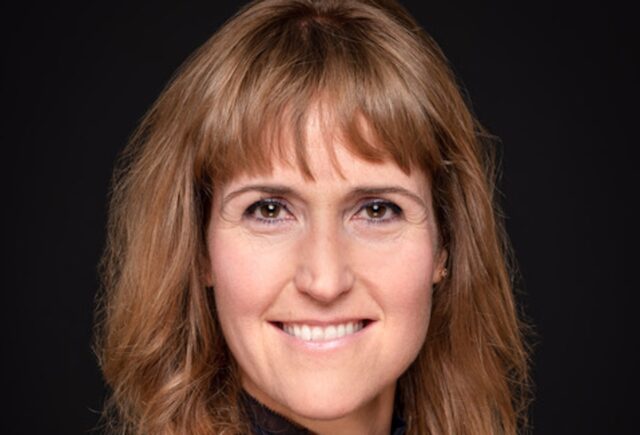A pan-European initiative led by Social Enterprise UK supports large companies seeking to engage with social enterprises. The aim is to bring more social enterprises into the supply chain of multinationals

In brief
- Buy Social Europe provides multinationals with access to a database of recommended social enterprises across Europe
- Johnson & Johnson, SAP and Zurich Insurance Group have already signed up
- SEUK: “Social enterprises sometimes struggle to land medium-sized loans they need to scale up”
A pan-European initiative to bring more social enterprises (SEs) into the supply chains of multinational companies aims to breathe life into a sector struggling to build on enthusiasm from social investors in the early years of the last decade.
Buy Social Europe, a pilot scheme launched last year, supports large companies – mainly multinationals – seeking to engage with social enterprise suppliers across Europe.
The initiative is led by Social Enterprise UK (SEUK), the trade body for the UK SE sector, with support from Euclid Network, the European Social Enterprise Network and Social Enterprise World Forum.
Johnson & Johnson, SAP and Zurich Insurance Group are among firms that have signed up so far, with more expected to join in coming months, Andy Daly, head of corporate partnerships at SEUK told Impact Investor.
“For 10 years, large companies have been telling us they are interested in buying from social enterprises and asking for help, and we’ve also seen more and more social enterprises in the business-to-business space saying they would like to work with corporate supply chains. That led us to launch the initiative,” he says.
The scheme provides access to a database of recommended social enterprises across Europe and facilitates engagement with potential SE suppliers.
Within the EU, Germany and Ireland are seen as providing the best opportunities to make rapid progress, as they have the bloc’s most mature SE supplier base.
The scheme provides access to a database of recommended social enterprises across Europe and facilitates engagement with potential SE suppliers
The pilot builds on a longer established programme focused on the UK, which is regarded as one Europe’s leading countries in terms of SE sector development. The Buy Social Corporate Challenge (BSCC), launched in 2016, currently has 29 large corporate partners.
The BSCC set a target for these companies to spend £1 billion (€1.2 billion) collectively with social enterprises through their procurement. In the period 2016-20, over £165 million had been spent with social enterprise suppliers by the participating businesses, according to SEUK.
Opportunity to innovate
What constitutes a social enterprise varies from place to place, but core requirements usually require that its social or environmental mission is explicitly stated in its governing documents and that it reinvests more than 50% of its profits to further that mission, among other elements.
Some organisations classified as SEs can be large, such as Spain’s Mondragón or the UK’s Cooperative Group, both of which have long histories. But more typically they are smaller, younger firms providing services such as building maintenance, catering, employee well-being, marketing, events, and small-scale information technology provision.
Daly cites the example of Speedpak, a Dublin-based contract packing and fulfilment provider, serving various manufacturers and online retailers, backed by a number of corporate and philanthropic investors. The firm’s mission is to transform the lives of long-term unemployed people through commercial work experience and training.
According to Alexandra van der Ploeg, head of corporate social responsibility, at multinational software firm SAP, the key to successful collaboration with smaller SEs is to regard it as a business opportunity, rather than just as an ESG activity or box ticking exercise.
“Until two or three years ago, our engagement came more from a corporate social responsibility perspective. We were looking at how we could help accelerate the sector, by building capacity and providing enterprises with access to SAP expertise. But then we saw the incredible innovation happening in the social enterprise space, and the very systemic approach these companies were taking to social and environmental issues. We realised there is a lot to learn from innovation-driven companies,” she says.
“The key to successful collaboration with smaller SEs is to regard it as a business opportunity, rather than just as an ESG activity or box ticking exercise.”
In 2020, SAP adjusted its procurement practices to diversify its supplier base. It introduced an initiative, known as ‘5 & 5 by ’25’, under which 5% of its addressable spend would be directed to social enterprises and 5% to diverse businesses by 2025.
Can investment match ambition?
Many multinationals have similar ambitions, and it remains to be seen how significant, in terms of value, SEs will become in company supply chains.
However if initiatives such as Buy Social Europe help SEs to win contracts from a broader range of European customers, then they should more readily be able to attract the investment from other sources they need to expand.
That investment will be badly needed if the sector booms in coming years, as some think it will.
Daly of SEUK says more budding entrepreneurs are entering the social enterprise sector, influenced by the need to address the social and environmental impacts of the Covid pandemic and climate change.
In the UK alone there are already an estimated 100,000 social enterprises, with a total turnover of more than £60 billion a year and employing 2 million people, according to SEUK.
But a report looking at possible reforms in UK social investment, published on January 26, highlights continuing problems for SEs in obtaining funding.
In ‘Reclaiming the Future’ report, an independent commission on social investment said that UK SEs were overly reliant on secured or property-based funding from banks and other institutions. It said the sector needed more access to funding from philanthropic and other social investors that had more appetite to make the sort of flexible high-risk, low-return investments needed to get nascent social enterprises off the ground.
The commission found that less than a quarter of lending to the social investment market came from unsecured investment or equity and venture funding in 2019 – a similar share of the market as in 2011. The commission engaged with more than 3,000 UK-based SEs, as well as other stakeholders to reach its conclusions.
SE’s ‘missing middle’
“Social enterprises can sometimes access market capital, but also need access to philanthropic capital, and concessionary capital, which may expect some financial return, but which is more flexible, patient and willing to accept lower than market rate returns,” the report said.
Daly believes there is a “missing middle” in lending to social enterprises. “If an enterprise wants less than £50,000 or more than £250,000 of investment, that’s not necessarily too difficult, but social enterprises with a bit of a track record that need a medium-sized loan can sometimes struggle to get the finance they need to scale up,” he said.
The report recommended a number of measures to improve funding, including more support from central government and greater efforts to support blended finance initiatives. It said that, while more unsecured lending and blended finance had emerged in the last few years, this had levelled off more recently.
“New sources of capital need to be brought into the social investment market to enable intermediaries to develop the right products for social enterprises to grow,” it said.
EU action plan
In the European Union, the SE sector is hoping measures outlined in the European Commission’s action plan on the social economy, presented in December 2021, will underpin growth.
The plan is intended to provide the basis for implementation of a new framework for the social economy to “thrive”, support capacity building and improve access to finance. Measures based on the plan are likely to be implemented over the next two years.





